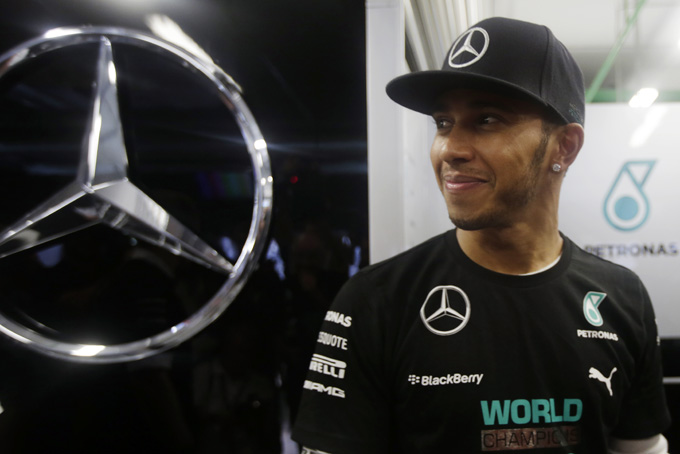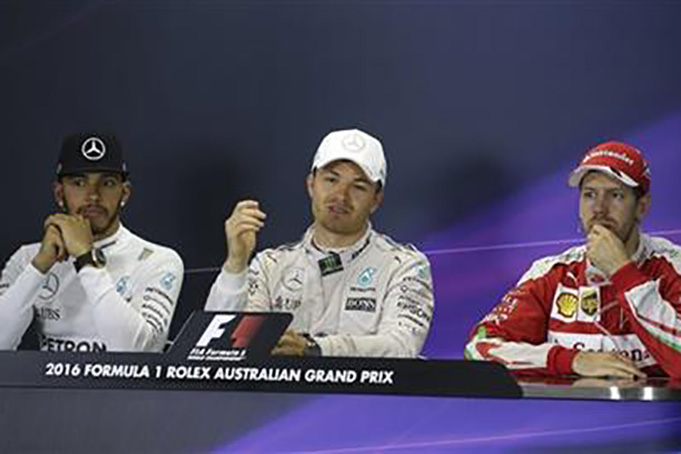PARIS (AP) — Just one race into the new Formula One season and unhappy drivers are calling the sport’s decision-making “obsolete and ill-structured” and calling for a “restructuring” of its governance.
A rushed decision to change the rules to qualifying, and then subsequently scrap those changes after last weekend’s season-opening Australian Grand Prix, underlines how much F1 is riddled with confusion and uncertainty as it tries to regain its lost popularity.
Four-time champion Sebastian Vettel — a critic of the new qualifying format which underwhelmed spectators and frustrated drivers in Melbourne — has joined former champion Jenson Button in demanding better leadership. Both signed an open letter on behalf of the Grand Prix Drivers’ Association (GPDA), along with its chairman Alex Wurz, to express their discontent ahead of the next race, the Bahrain GP on April 3.
“The drivers have come to the conclusion that the decision-making process in the sport is obsolete and ill-structured and prevents progress being made,” the GPDA said. “We feel that some recent rule changes – on both the sporting and technical side, and including some business directions – are disruptive, do not address the bigger issues our sport is facing and in some cases could jeopardize its future success.”
Changes to qualifying proved instantly unpopular.
The three qualifying periods remained in place, but instead of having the slowest drivers eliminated at the end of each session, they were dropped one by one every minute and a half.
The last session, Q3, saw the first of the eight remaining drivers eliminated after five minutes until two cars are left for the final minute and a half.
Or at least, that was the plan. But in Melbourne, cars stayed in the garage way before the finish of Q3 and the exciting finale never materialized.
As a consequence, the sport’s rule-makers — F1 stakeholders led by Bernie Ecclestone in conjunction with governing body FIA — were embarrassingly forced to U-turn.
The GPDA still fears that the current lack of clear leadership is not helping improve popularity and rather “can sometimes lead to just the opposite” — which reflects negatively on the sport.
“(It) prevents it being fit for the next generation of fans and compromises further global growth. We would like to request and urge the owners and all stakeholders of Formula One to consider restructuring its own governance,” the GPDA said. “The future directions and decisions of F1, be they short or long term, sporting, technical or business orientated should be based on a clear master plan. Such (a) plan should reflect the principles and core values of Formula One.”
F1 has become predictable over the past few seasons.
Red Bull dominated the 2013 campaign as Vettel won 13 races on the way to a fourth straight title, and Mercedes has been emphatic since.

World champion Lewis Hamilton has won the past two championships ahead of teammate Nico Rosberg and Mercedes — 1-2 in Melbourne — has crushed the competition even more than Red Bull during Vettel’s pomp.
Less noisy engines, a lack of overtaking, predictable race outcomes, plus rising prices have led to a drop in attendances and a clamor from fans for more excitement.
At last year’s Monaco GP in May, the GPDA even took the initiative of asking fans, via a lengthy questionnaire, what they want to see improved in F1.
Bold moves have been tried before and backfired — such as awarding double points for the final race of the 2014 season — and new changes for 2017 are still up in the air after failure to rubber-stamp them earlier this month.


